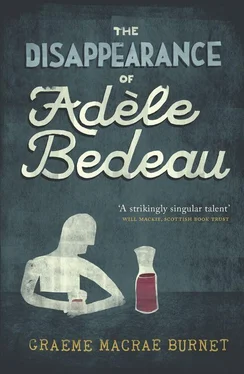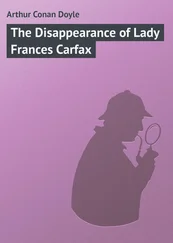Manfred felt like he was in a scene from a film. Next the cop would say, You haven’t asked me what this is about ? and he would immediately fall under suspicion. But Manfred had missed his opportunity. Whatever he said now would sound stilted and unnatural. Of course, he suspected why Gorski was there. In a sense he had been expecting him. He should have confined himself to a polite How can I help you ? Or he should have said straight out that he assumed the policeman’s visit was something to do with the waitress. Gorski did not appear to notice Manfred’s discomfort. He must be accustomed to people behaving awkwardly in the presence of the police. Indeed, to behave in a relaxed manner might suggest that one was used to dealing with the law and was therefore a suspicious character.
Gorski patted the back of the chair that Manfred had been sitting in.
‘Do you mind?’ he said, sitting down without waiting for an answer.
Manfred asked if he could offer the detective a cup of coffee. Gorski declined and Manfred sat down on the opposite side of the table. He would have liked to occupy himself with the business of making coffee. Gorski had done nothing to put him at his ease. He picked up the book Manfred had been reading and examined it. Manfred smiled apologetically. He contemplated telling the policeman that he was well versed in more elevating literature, but he did not do so. Perhaps the policeman read only detective novels, or read nothing at all and would think him snobbish. In any case, what was wrong with passing a Saturday afternoon with a popular novel?
Gorski laid the book carefully back on the table.
‘This shouldn’t take long,’ he said, but he did not appear to be in any hurry.
Manfred clasped his hands and set them on the table in front of him in an attempt to stop fidgeting. He did not feel he was making a good impression.
Gorski suddenly pushed his chair back and stood up. This instantly made Manfred feel that he was about to be interrogated, but he could hardly now jump to his feet to put himself on an even footing with the policeman.
‘I’m investigating the disappearance of Adèle Bedeau,’ said Gorski.
‘Disappearance?’ said Manfred. He was pleased with the way it came out — as if he was genuinely surprised. It was better, Manfred decided, that he had not mentioned Adèle before this point. Just because a girl did not appear for work and failed to inform her employers of the reason for her absence, it did not mean that something untoward had happened.
Gorski shrugged. ‘Perhaps “disappearance” is too strong a word. A couple of days ago she was around and now she isn’t. Nobody knows where she is. So, to all intents and purposes, she has disappeared.’
Manfred nodded.
‘I take it that you know Mlle Bedeau?’
‘Yes,’ said Manfred. It would be stupid to deny it. ‘She’s a waitress at the restaurant where I eat lunch.’
‘And that is that the extent of your relationship?’
‘I’m not sure I would say we had a relationship. Until just now I didn’t even know her second name.’
He felt a little more relaxed. Gorski did not give the impression that he was going to unduly press him. The detective sat down.
‘She is a waitress and you are a customer. Nothing more?’
‘Yes.’
‘You’ve never seen her outside the restaurant?’
‘You mean in a social sense?’
‘In any sense.’
Manfred shook his head slowly, as if giving the matter some thought.
Gorski gave no indication of disbelieving him.
‘Mlle Bedeau hasn’t been seen since she left work on Thursday evening. You haven’t seen her since then?’
It was on Thursday that he had spied on Adèle and the young man in the little park. Manfred had no wish to become embroiled in a police investigation, but perhaps what he had seen was of significance. What if the youth on the scooter was a suspect in Adèle’s disappearance? What if he was the only one who had seen them together? But only a moment before, he’d told Gorski he had never seen Adèle outside the restaurant. It was not advisable to contradict himself.
‘No,’ he said. ‘No, I haven’t.’
Gorski nodded curtly, as if this was precisely what he had expected Manfred to say. Did he already know that Manfred had seen Adèle on the night in question?
He stood up abruptly. ‘I won’t detain you any further, monsieur. Thank you for your time.’ He handed Manfred a card and told him to call if he thought of anything.
Having seen Gorski out with the same awkwardness in the narrow passage, Manfred returned to his chair at the kitchen table. How stupid it had been to lie. The policeman had disconcerted him. It would have been a simple matter to tell him what he had seen on Thursday evening, to have described the young man and in which direction they rode off. He need not have mentioned how he had loitered at the edge of the park. Now he had withheld evidence from the investigation. What was more, when his omission came to light, as it inevitably would, he would be sure to fall under suspicion.
Later Manfred sat with his forehead against the window of the train to Strasbourg. It was done now. Short of calling the number on Gorski’s card and pretending that he had suddenly remembered what he had seen, there was nothing he could do to remedy the situation. And in any case, if the situation arose again, would he not behave in exactly the same way? What benefit would there have been in divulging what he had seen? More questions would certainly have followed. He would become involved in the investigation and Manfred did not like to be involved in anything. And where, after all, did the truth end? Should he have confessed his silly crush on Adèle, a crush based on nothing more than the girl concealing their familiarity from her friend? Should he have told Gorski how he surreptitiously watched Adèle go about her chores in the restaurant, hoping, like a schoolboy, for a glimpse of her brassiere?
Before heading to Chez Simone, Manfred went to a large brasserie near the station. The waiter recognised him and acknowledged him with an upward movement of his head. Manfred ordered a mushroom omelette with frites and a half-bottle of wine, as he always did. A group of students, three boys and two girls, sat around a nearby table by the window, scarves knotted fashionably around their necks. Manfred opened his book on the table, but he did not read it. He observed the students with the detachment of an anthropologist. They were entirely oblivious to his presence. Manfred was not close enough to hear the subject of their discussion, but it was obvious that the boys were competing to impress their female companions with witty or learned remarks. At a certain point a third girl joined the group and an elaborate round of handshakes and kisses was exchanged. The new arrival was exceptionally pretty and the boys now unashamedly directed their attentions towards her. The two other girls engaged in a separate conversation. Manfred felt like he was witnessing a ruthless evolutionary ritual.
He paid his bill. He had to pass the students’ table on the way to the door and as he did so, he slowed his pace and inhaled the scent of the newcomer. None of the students so much as glanced at him.
Manfred always had a couple of drinks at Simone’s before engaging on the actual business of his visit. When it was free, he took the seat at a table in the corner and sat watching the other customers. The place was lit only by the lights illuminating the bottles behind the bar and by the candles on the tables. Madame Simone sat on a high stool at the end of the bar with a glass of wine, a cigarette constantly burning in her hand. The smoke made languid coils in the lights behind the bar before dispersing into the general fug. She was close to fifty years old and dressed in a black wraparound dress fastened beneath her breasts. She had a pronounced nose, a wide red mouth and darting, twinkling eyes, thickly painted with mascara. She always greeted Manfred with great warmth, called him darling and kissed him on both cheeks. She greeted all her patrons in this way, but Manfred was always touched by her welcome. Simone never dispensed drinks. Such duties were performed by whichever of the girls were in the bar at the time. In all his visits, Manfred had never seen Simone take a sip of her drink. It was a prop to create the illusion that one was not in a public establishment, but a personal guest, sharing a drink with the hostess. Now and again Simone joined a group of men at their table and gracefully passed a few minutes with them.
Читать дальше












